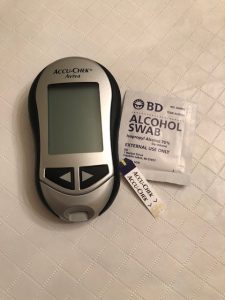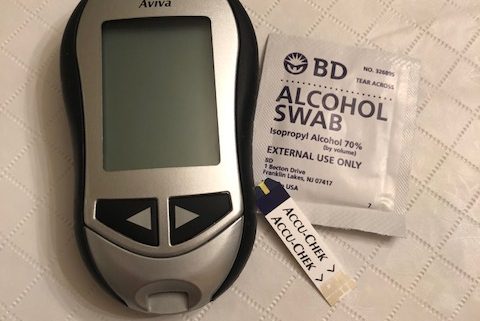Time to Spread Awareness About Diabetes
 Did you know that within the last 20 years, the number of adults diagnosed with diabetes has more than tripled? Currently, more than 30 million people in the United States have diabetes and an additional 84 million adults have prediabetes. Unfortunately, these numbers are continuing to grow. This is why there is an entire month dedicated to bringing awareness to diabetes as an effort to reduce your risk of diabetes.
Did you know that within the last 20 years, the number of adults diagnosed with diabetes has more than tripled? Currently, more than 30 million people in the United States have diabetes and an additional 84 million adults have prediabetes. Unfortunately, these numbers are continuing to grow. This is why there is an entire month dedicated to bringing awareness to diabetes as an effort to reduce your risk of diabetes.
November is National Diabetes Awareness Month and World Diabetes Day is November 14, making now the perfect time to learn about what changes you can make and to spread awareness.
All About Diabetes
Let’s start with the basics: What is diabetes? Diabetes is a disorder where you have an increased glucose, also known as blood sugar. The three most common types of diabetes are type 1, type 2, and gestational diabetes.
- Type 1 – This type of diabetes is typically diagnosed during childhood or young adulthood. It is considered an autoimmune disorder because your immune system attacks and destroys the cells in your pancreas that makes the insulin, which leads to your pancreas making little to no insulin. Insulin is a hormone needed to allow glucose to enter your cells, instead of sitting in your bloodstream. Type 1 affects only 5-10% of people who have diabetes
- Type 2 – Unlike type 1, this is not an autoimmune disorder and, instead, is caused by genetics and lifestyle factors. Your body improperly uses insulin or builds insulin resistance. Thus, your pancreas starts to pump out more insulin to compensate for insulin resistance. If this process occurs over time, your pancreas will get worn out and eventually won’t make enough insulin. This will leave glucose in your blood instead of moving it into cells. About 90-95% of people who have diabetes have type 2.
- Gestational Diabetes – This type of diabetes is exclusive to pregnant women. All pregnant women undergo a glucose tolerance test (GTT) at 24-28 weeks. During this test, you are giving a specific amount of glucose (sugar) and then monitored for how your blood sugar reacts. You are diagnosed depending on the results. This condition goes away after the baby is born, however it does increase your risk for type 2 diabetes later in life.
Risk Factors, Signs and Symptoms
Unfortunately, type 1 diabetes is not preventable as genetics plays a role. But the good thing is that type 2 diabetes is! If you reduce your risk factors, you reduce your chance. Risk factors include: being overweight, 45 years of age and older, having a parent or sibling with diabetes and being physically inactive.
Knowing the signs and symptoms of diabetes is also vital and can help prevent some of the more serious side effects associated with diabetes.
- Increased thirst
- Frequent urination
- Cuts or sores that take longer than normal to heal
- Swelling of the extremities
- Irritability and mood swings
If you have one or more of the risk factors for type 2 diabetes and are experiencing any of the above sign or symptoms, it may be time to set up an appointment with your primary care physician to get check out!
Time to Take Action
It’s never too early, or too late to take steps to reduce your risk of type 2 diabetes!
1. Healthy Eating– Work on including more whole grains, fruits and vegetables, lean meats, legumes and fish. Aim to limit processed foods high in sugar and fat.
2. Exercise – Exercise is important for preventing many diseases. Exercise helps lower blood sugar levels for those who have pre-diabetes or diabetes. Thirty minutes of physical activity 5 days a week is adequate. You can begin an exercise regimen slowly and work your way to target goal.
3. Quit Smoking – If you are a smoker, try and quit. Smoking contributes to insulin resistance and lead to type 2 diabetes.
4. Annual Physicals – An annual physical is always recommended and can help you stay ahead of what is going on in your body. It’s also a good time to get screened and see if you are at risk for developing diabetes.
Everyone has a role to play in the fight against diabetes. Whether you are personally affected by it, or may know of someone who is, taking action today can help change you or someone else’s life for the better.
Your Turn to Take Action: What lifestyle change will you make to prevent diabetes? Or, how will you spread awareness? Let me know in the comments below!


Leave a Reply
Want to join the discussion?Feel free to contribute!